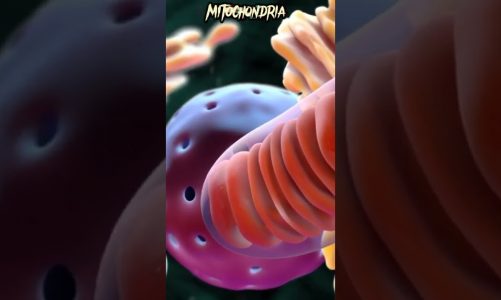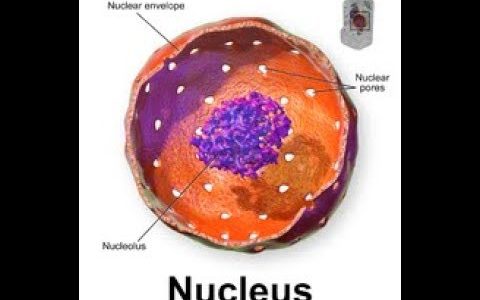a new study out of the University of South Florida into the sirtuins, and in particular Sirt1 and Sirt3, has retuned some very promising results for those who suffer from an acute heart attack.
Alive by Science 10% Discount Code: MYNMN (https://bit.ly/3euiDd5)
DoNotAge.org 10% Discount Code: MYNMN (https://bit.ly/2VBDgNt)
I hope you enjoy my content and find it interesting or informative, hopefully both, if so, please consider supporting the channel by signing up to the one you prefer:
*Buy me a Kofi: https://ko-fi.com/mynmnexperiment
*Patreon: https://bit.ly/3hhfjl5
*Subscribestar: https://bit.ly/3psYo23
https://onlinelibrary.wiley.com/doi/10.1111/acel.13419
https://www.sciencedaily.com/releases/2021/08/210824104133.htm
https://bit.ly/3sIrPjv
https://haleplushearty.org/2021/08/24/age-related-decline-in-two-sirtuin-enzymes-alters-mitochondrial-dynamics-weakens-cardiac-contractions/
https://tgihealthcareerp.com/health-news/age-related-decline-in-two-sirtuin-enzymes-alters-mitochondrial-dynamics-weakens-cardiac-contractions/
DISCLAIMER: The Video Content has been made available for informational and educational purposes only. The video creator does not make any representation or warranties with respect to the accuracy, applicability, fitness, or completeness of the Video Content. The Video Content is not intended to be a substitute for professional medical advice, diagnosis, or treatment. Always seek the advice of your physician or other qualified health provider with any questions you may have regarding a medical condition. The video creator hereby disclaims any and all liability to any party for any direct, indirect, implied, punitive, special, incidental or other consequential damages arising directly or indirectly from any use of the Video Content, which is provided as is, and without warranties.
Sirtuins are a family of anti-aging proteins that help regulate cellular lifespan, metabolism, and resistance to stress. The potential protective effect of sirtuins in age-related diseases, including cardiovascular diseases, remains an area of intense investigation, with many Labs worldwide spending enormous amounts of time and money on ground-breaking research. In a new preclinical study led by the University of South Florida Health, researchers have determined that sirtuin 1 (SIRT1) and sirtuin 3 (SIRT3) levels decline in aging hearts; disrupting the ability of cardiac muscle cells to contract in response to reperfusion injury. Furthermore, age-related SIRT1 and SIRT3 deficiency can impair cardiac function by altering mitochondrial dynamics; the researchers report that ‘the mitochondria play a vital role in metabolic health and inflammatory response.’
Our mitochondria produce the energy needed to drive nearly all the processes in our living cells. Cardiac muscle cells contain more mitochondria than any other cells in the body, this because the heart needs large amounts of energy to constantly pump blood throughout the body. Stabile mitochondrial dynamics maintain a healthy balance between the constant division (called fission) and the merging (called fusion) of mitochondria – and helps ensure the quality of these specialized structures more commonly known as the “powerhouse” of the cell.
Reperfusion therapy is a common treatment that includes drugs and surgery. It is performed following an acute heart attack; it restores blood flow (and therefore oxygen) to the region of the heart damaged by the heart attack. Unfortunately, in some patients this necessary procedure triggers further injury to the heart-muscle-tissue surrounding the initial heart attack site. Regrettably, no effective therapies currently exist to prevent reperfusion injury.
To help analyze the response of cardiac mitochondria to reperfusion stress, the researchers deleted SIRT1 or SIRT3 in the cardiac muscle cells of mouse hearts, and then examined the mitochondrial response to stress caused by restricted blood flow. The researchers found that the mitochondria in mouse hearts lacking SIRT3 were more vulnerable to reperfusion stress than the mouse hearts with their SIRT3 intact. The cardiac mitochondrial dynamics (including shape, size, and structure of the mitochondria) in these knockout mice, physiologically resembled that of aged normal mice retaining cardiac SIRT3. Furthermore, the young mice with SIRT1 or SIRT3 removed had measurably weaker cardiomyocyte contractions
DISCLAIMER: This video and description contain discount codes, which means that if you use the code, I will receive a small commission.
FAIR-USE COPYRIGHT DISCLAIMER
Copyright Disclaimer Under Section 107 of the Copyright Act 1976, allowance is made for “fair use” for purposes such as criticism, commenting, news reporting, teaching, scholarship, and research. Fair use is a use permitted by copyright statute that might otherwise be infringing. Non-profit, educational, or personal use tips the balance in favor of fair use. #Sirtuins #ReperfusionTherapy #ReperfusionStress
source



